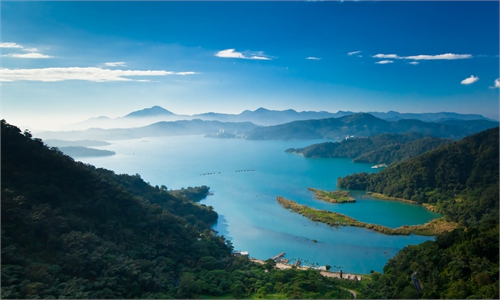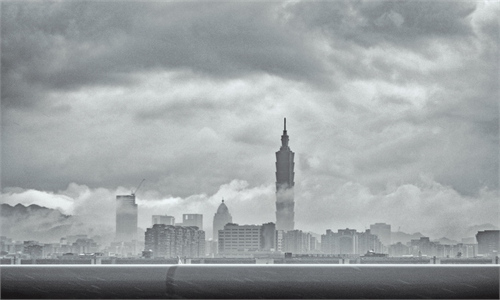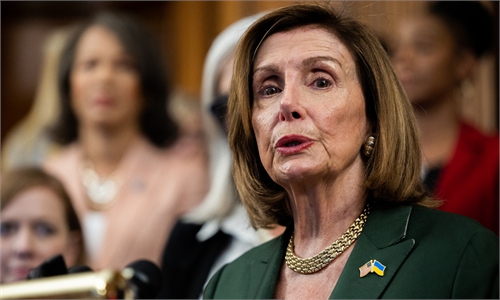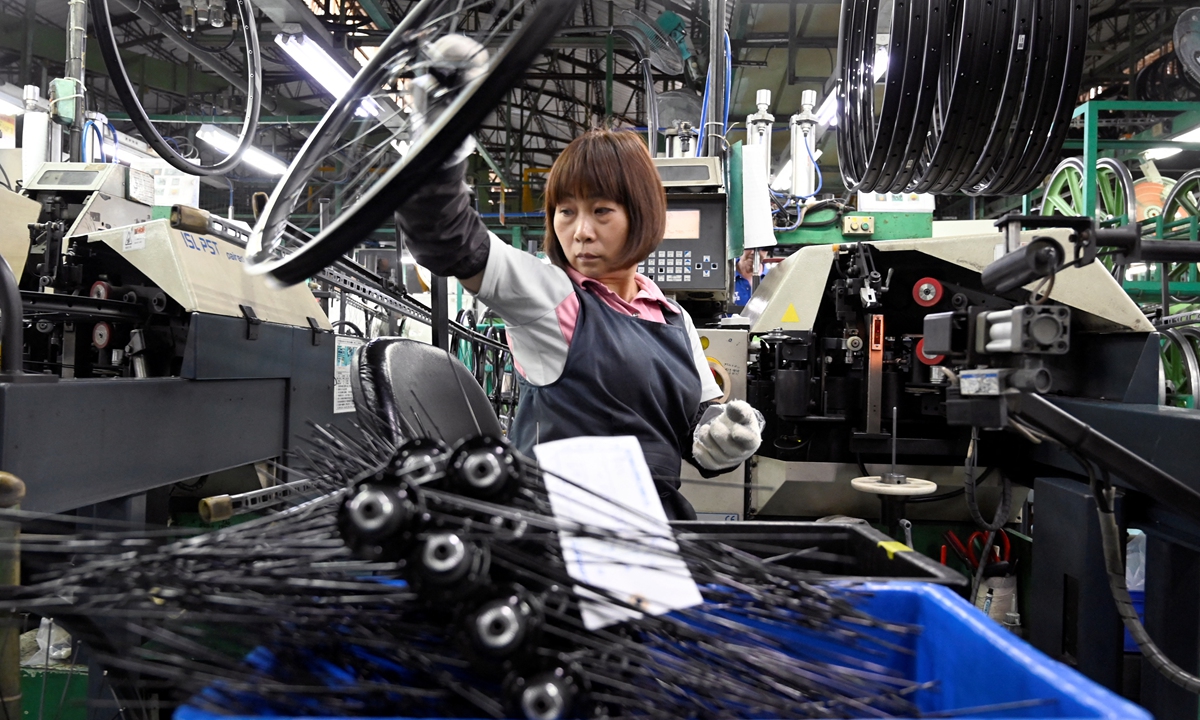
A worker checks e-bike parts at a factory of Giant Bicycles, the world's largest bicycle manufacturer, in Taichung, the Taiwan island of China, on May 21, 2019. Photo: AFP
The Chinese mainland on May 31 announced the suspension of tariff concessions on 134 items under the Economic Cooperation Framework Agreement (ECFA) due to separatist acts made by the Taiwan authorities.
This means that the 134 items, mainly including petrochemicals, textiles, machinery, steel and metal, and transportation equipment, would face 1 percent to 12 percent tariffs on the mainland starting June 15.
Financial authorities in the island of Taiwan kept stressing that the impact of the latest suspension is "within a controllable range," citing that these items only accounted for approximately 2 percent of the island of Taiwan's total exports to the whole world in 2023, but have they considered the issue from the manufacturers' perspective?
For example, if there is a manufacturer on the island of Taiwan that produces printing ink and exports products worth about 300 million new Taiwan dollars to the mainland annually, under the ECFA, they would need to pay no tariff for the business. But after the suspension and tariffs were restored to 6 percent starting June 15, they would have to pay an additional 18 million in new Taiwan dollars, which is over 3 million yuan, in tariffs.
This would very likely push such manufacturers either to sacrifice the companies' profits or increase prices and lose customers. What does this mean to the manufacturers, especially when taking into account that manufacturers affected at this time are mostly small and medium-sized enterprises in traditional industries?
The suspension of ECFA tariff rate cuts expose the malevolence of the DPP authorities, said Yu Chih-pin, special assistant to the chairman of the New Party, a pro-reunification political party in the island of Taiwan.
The Taiwan authorities led by Lai Ching-te have stuck to the "Taiwan independence" stance and refused to recognize the 1992 Consensus.
"This separatist stance kidnapped the well-being of people in Taiwan," he said.
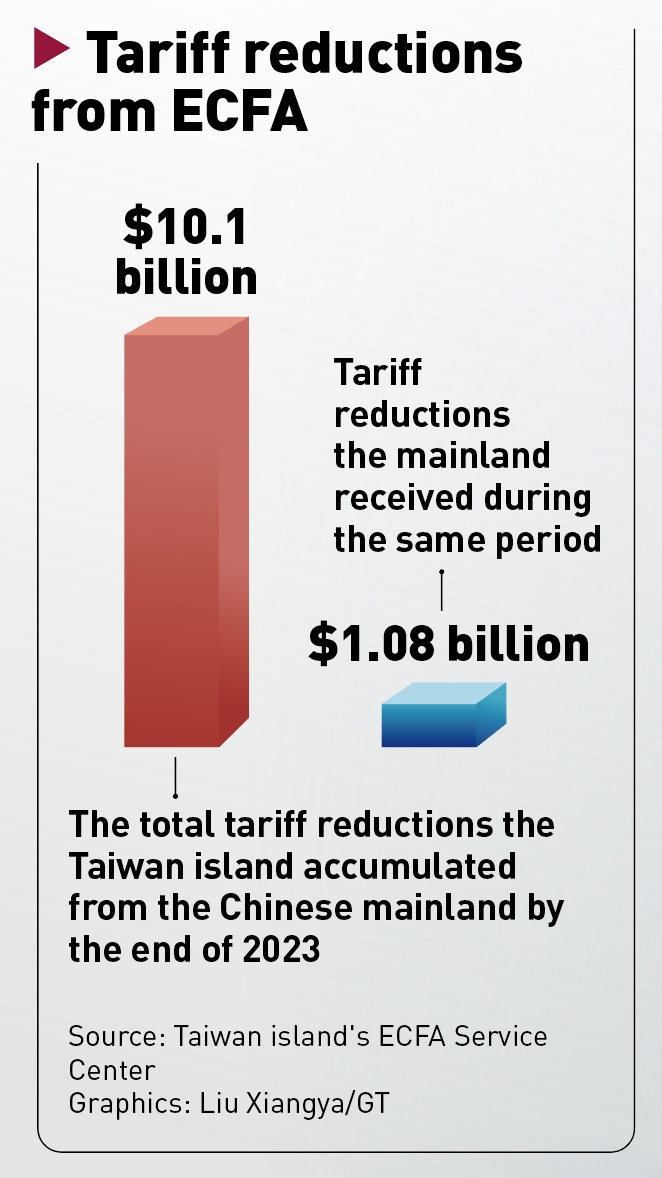
Tariff reductions from ECFA Graphics: Liu Xiangya/GT
Fatal blow
The ECFA took effect in 2010 as a comprehensive economic pact aiming to lower commercial barriers across the Taiwan Straits. Under its "early harvest program," the mainland reduced tariffs on 539 goods from the island of Taiwan, while Taiwan dropped duties on 267 mainland goods.
According to data from Taiwan's ECFA Service Center, as of the end of 2023, Taiwan island had received $10.1 billion in tariff reductions from the mainland under the ECFA over 13 years, while the mainland had only received $1.08 billion in tariff reductions from the island of Taiwan during the same period.
This time's suspension followed a previous one for 12 kinds of petrochemical products such as propylene imported from the island of Taiwan starting from January 1, 2024.
The suspension of ECFA tariff cuts is taking a clear toll on the island of Taiwan. As some local observers have said, although some industry giants may be able to withstand the impact of the suspension, it doesn't mean that many small and medium-sized enterprises on the island have the same ability. And once the relatively small companies get hurt, it will definitely affect a huge number of involved employees.
A working population of about 2 million on the island may be affected by the suspension, as estimated by agencies in the island of Taiwan based on the related industries involved in the early collection projects, Taiwan media outlet United Daily News reported in June.
According to the Taiwan Association of Machinery Industry, in 2023, the export volume of machinery products to the mainland under the ECFA was about $2.8 billion.
Once tariffs are restored from zero to 5-10 percent, the market share of Taiwan-related mechanical equipment is estimated to decline, and the region's export amount to the mainland will decrease by $1.1-1.4 billion per year. And the effects will increase over time.
These affected industries face leaving the island or closing down, and workers may lose their jobs, or have to seek employment in the tertiary sector instead, analyzed Yu, who also holds a doctorate from the School of Economics at Xiamen University.
"And thus, the island of Taiwan's low-wage plight will worsen, and the wealth gap dilemma will be exacerbated," Yu told the Global Times. Yu noted that the DPP authorities are causing such plights.
"It was a fatal blow by Lai Ching-te to the poor working masses of the island of Taiwan after he took office."
Due to the tariff exemption under the ECFA, small and medium-sized enterprises in the island of Taiwan can produce and export their products to the mainland with preferential tariff rates. This policy helps to integrate supply chains on both sides very well.
However, Lai repeatedly peddles his "two-state theory," causing tensions in cross-Straits relations, putting the lives, property, and investment of millions of Taiwan people and businesses at risk, observers noted.
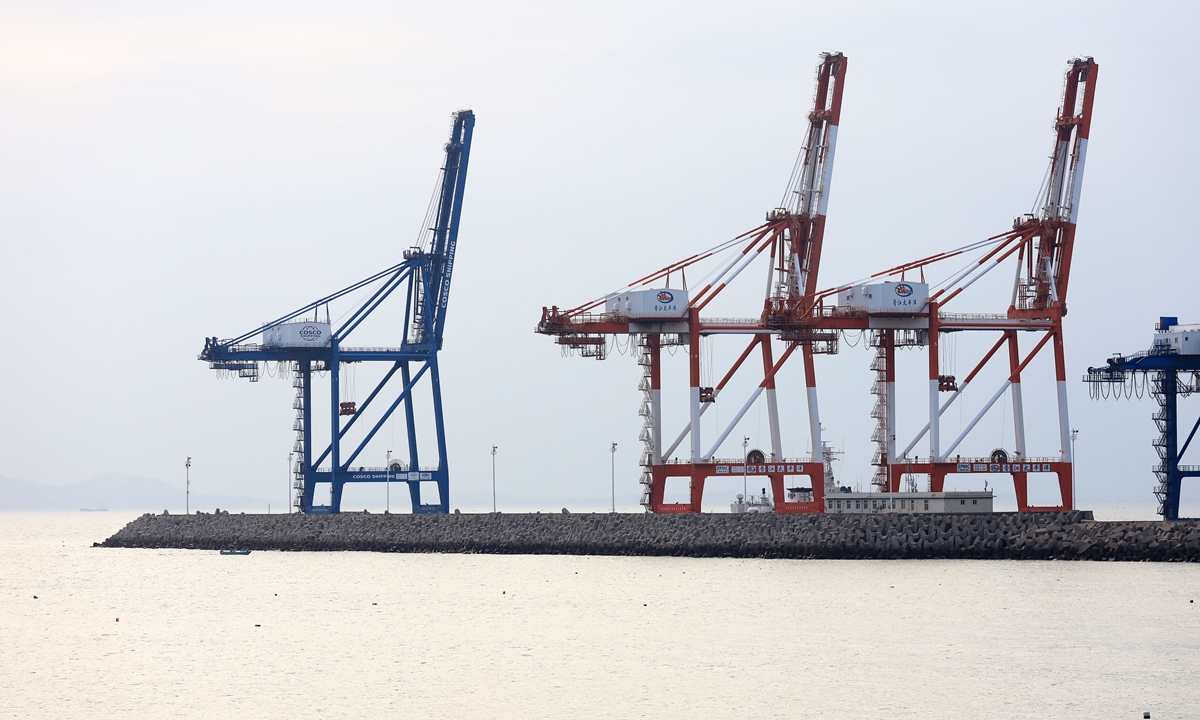
Weitou Port in Quanzhou, East China's Fujian Province, the nearest port in the maninand to Jinmen, Taiwan Photo: VCG
Political victims
The fundamental reason why the mainland has to halt tariff cuts enjoyed by some Taiwan products under the Economic Cooperation Framework Agreement (ECFA) is the separatist acts perpetrated by the Taiwan authorities, Chen Binhua, spokesperson for the State Council of Taiwan Affairs Office, said at a press conference on May 31.
The Taiwan authorities led by Lai have stuck to the "Taiwan independence" stance, refused to recognize the 1992 Consensus, and incited cross-Straits confrontation and economic "decoupling," Chen reiterated.
These actions seriously undermine the foundation of cross-Straits consultations and the implementation of the ECFA, which was signed on the common political foundation of the 1992 Consensus that embodies the one-China principle, Chen said.
Since taking office on May 20, Lai has taken a more radical stance seeking "Taiwan independence" to further damage cross-Straits relations.
After the mainland issued the guidelines on imposing criminal punishments on diehard "Taiwan independence" separatists for conducting or inciting secession on June 21, both the DPP authorities and the US have taken an opposing stance. In an interview on July 1, Liang Wen-chieh, deputy director and spokesperson of the "mainland affairs council" on the island of Taiwan, peddled the "mutual non-subordination" fallacy while intimidating and misleading the public by broadening the interpretation of the guidelines, and expanding the scope to suggest that the guidelines target everyone.
Such statements completely disregard facts, distort right and wrong, maliciously smear and defame the mainland, and blatantly threaten and intimidate the people in Taiwan, Chen responded in a statement on Tuesday.
While busy shouting separatist slogans, Lai has paid little attention to the island's livelihood issues, leading to complaints from all walks of life in the island of Taiwan. On June 27, the Taiwan region's "mainland affairs council" announced it would raise its travel alert for the mainland, Hong Kong, and Macao to the second-highest orange alert with immediate effect, advising Taiwan residents to avoid unnecessary travel to these regions due to increasing safety concerns.
This move once again triggered a flood of discontent among Taiwan residents and regional cross-Straits tour operators.
"The travel industry will be the first to suffer from the alert. The industry can't withstand this for a long time. It is extremely unfair to industry players," Hsu Chin-ruey, president of the Taiwan Strait Tourism and Travel Association, told regional media.
Cross-Straits relations, inflation, the wage gap, soaring house prices... Lai has taken office for more than a month but so far people have not seen any good results, said Lee Yen-hsiu, a regional legislator in Taipei. "These are Lai's problems, but there is no way for him to solve them," she said to local media.
At a New Party's press conference on June 26, the party's chairman Wu Cherng-dean condemned Lai and his secessionist DPP authority for obstinately pursuing a cross-Straits confrontation and leading the island of Taiwan to a dead end.
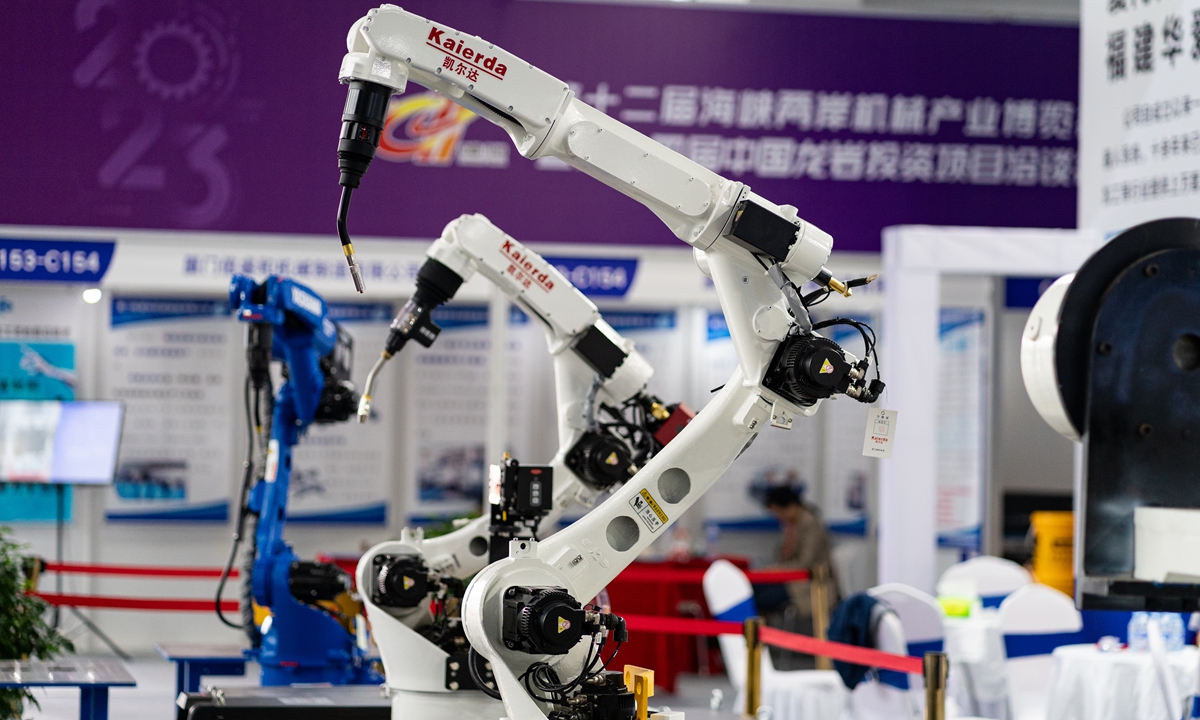
Cooperation benefits both
The DPP's malicious actions have inflicted heavy losses on local industries, but have not dampened Taiwan youth and business people's confidence in and enthusiasm for the mainland.
Cross-Straits industrial cooperation continues to deepen, the production and supply chain remains stable, the investment structure of Taiwan businessmen is further optimized, and Taiwan businessmen and enterprises are accelerating and increasing their investments in the Chinese mainland with a more confident and firm commitment to continued development, spokesperson Chen said in a statement in January.
Xu Yuanshun is a Taiwan businessman who came to the mainland more than a decade ago. Xu built a family in Southwest China's Sichuan Province and is now the president of a cross-Straits young entrepreneurs association in Deyang, Sichuan.
"We Taiwan youngsters and Taiwan businessmen who have come to and lived in the mainland are very confident in the development of the mainland. We certainly hope that the two sides on the Taiwan Straits can move toward peaceful reunification so that we can all obtain more opportunities in trade and for exchanges," Xu said.
If the ECFA can be continued and developed smoothly, it will not only help deepen the economic and trade relations between the two sides, but will also inevitably have a positive impact on the development and cooperation in high-tech fields such as semiconductors, digital finance, high-end manufacturing, biomedicine and agricultural technology, observers noted.
This is especially true in the face of the opportunities brought about by the Belt and Road Initiative and the fourth industrial revolution fueled by booming artificial intelligence (AI) technologies.
"The Chinese mainland is promoting environmental protection, green energy, carbon trading, and other aspects. In the field of AI, especially AI applications in electronic vehicles, and big data, the Chinese mainland is leading the world. The two sides of the Taiwan Straits can strengthen cooperation in both software and hardware, and there will be great development potential," George Chen, founder of Capital Securities Corp and chairman of Ka Shui International Holdings Ltd, told Taiwan media after meeting with partners in the mainland in early June as a member of a delegation of Taiwan business people.
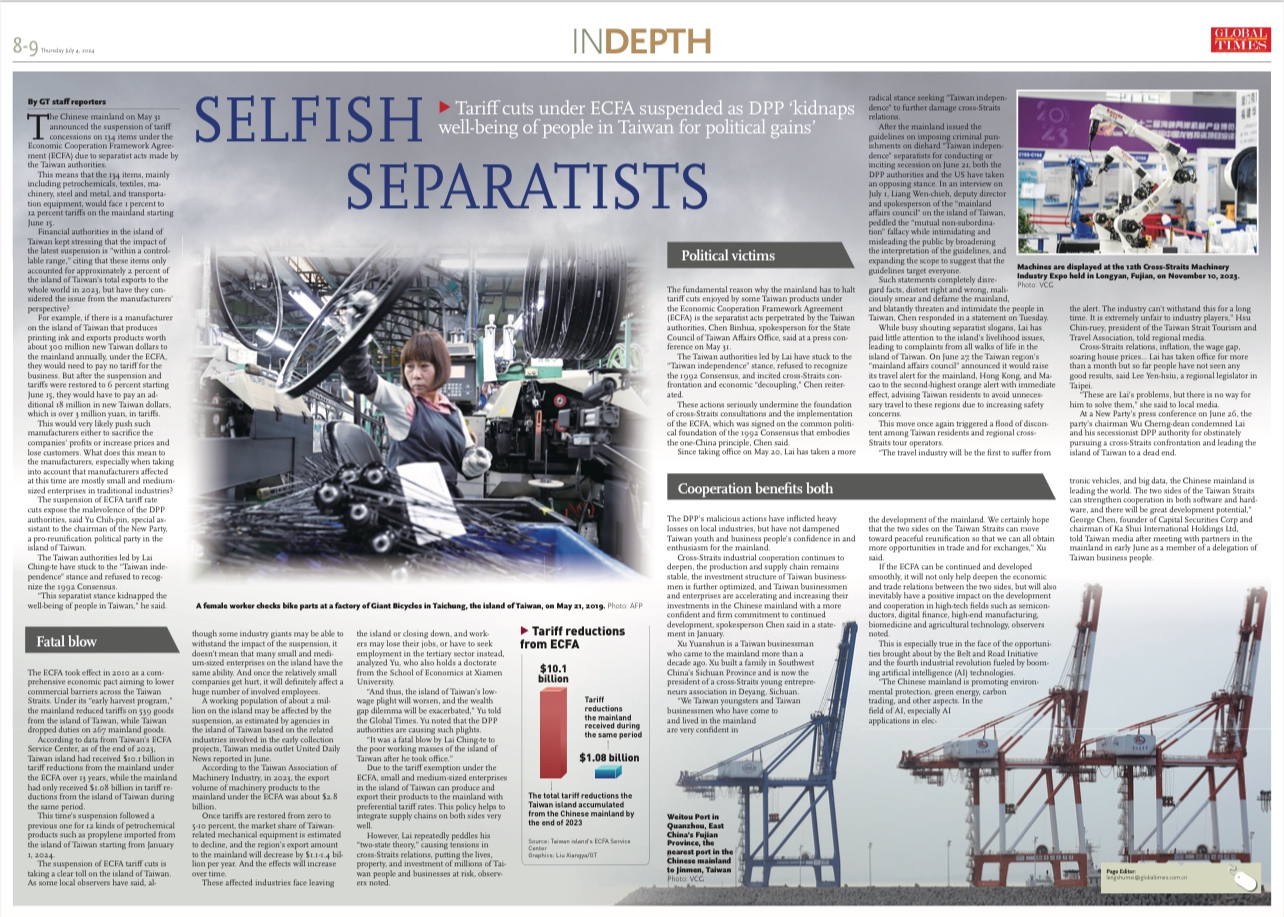
Selfish separatists
